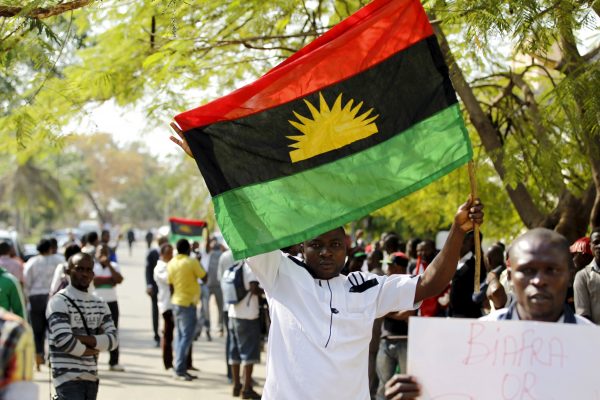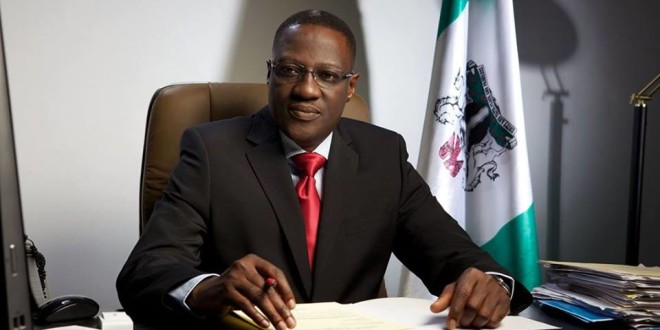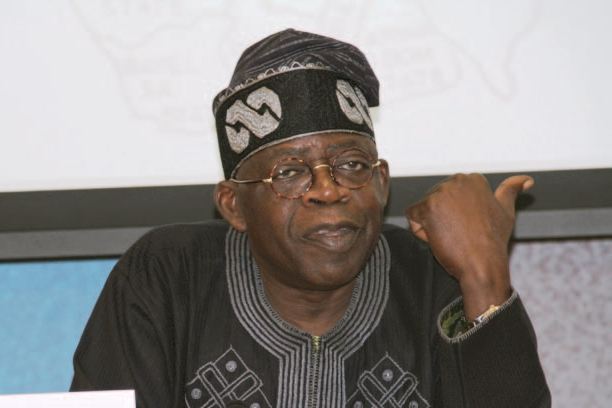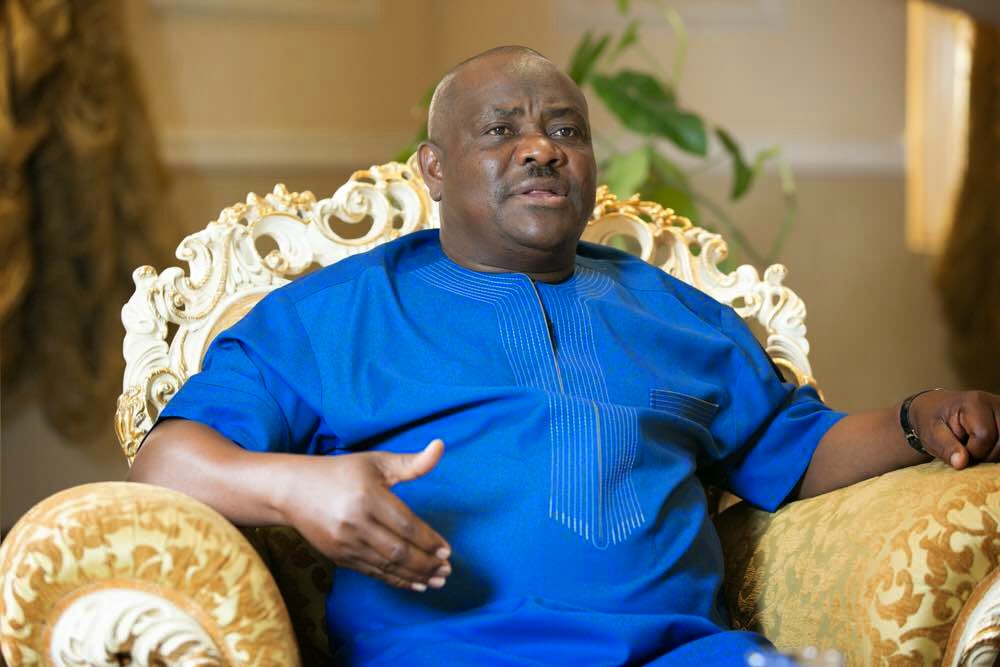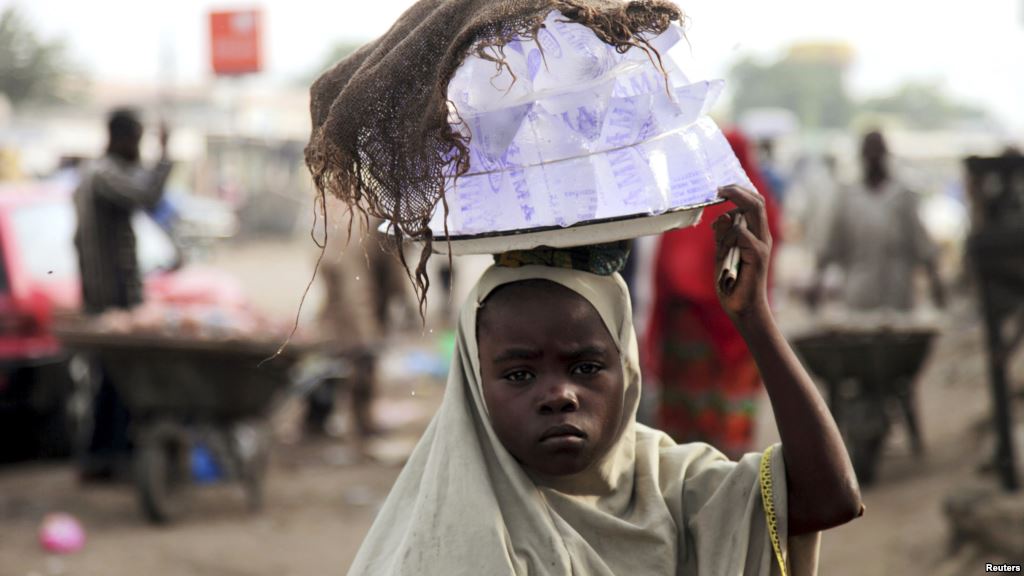By C. Don Adinuba
“A state built on tribal foundations”, observes Francis Fukuyama in his 2011 magnum opus, The Origins of Political Order, “is inherently weak and unstable”. Yet, Nigerian politics is defined by ethnic identity but also the brand which the political science scholar Richard Joseph has identified as prebendalism, making rulers see themselves as not national leaders but representatives of sectional and religious interests fiercely involved in a contest for resource buccaneering. The predominance of all manner of primordial nationalism in Nigerian affairs makes rewarding conversations difficult, as such dialogues are led and dictated by energetic parochial elements who generate heat rather than light.
This is why Chudi Offodile’s The Politics of Biafra and Future of Nigeria is an important contribution to the ongoing conversation on Biafra. It is an informed commentary, revealing, dispassionate, courageous, measured and wide ranging in coverage. It is written with sincerity and conviction. Offodile is the first person to link the emergence of Raphael Uwazurike’s Movement for the Actualisation of the Sovereign State of Biafra (MASSOB) with Alex Ekwueme’s loss of the presidential nomination of the Peoples Democratic Party (PDP) in Jos in 1999 to erstwhile military ruler Olusegun Obasanjo who did not even meet the requirements for participation in the process and made practically no contribution to the party. Still, the PDP changed the rules for him at the 11th hour.
No person has in recent years mobilized the Igbo as the former vice president did when the military government lifted the ban on politics because his presidential quest was the closest step the Igbo have taken to State House since the end of the Civil War in 1970. Ekwueme was stabbed in the back by Jerry Gana, Iyiorcha Ayu, Solomon Lar, Abubakar Rimi and the rest who were with him in G-34; they were working in cahoots with the Abubakar military regime and its agents like Suleiman Takuma. To most Igbo people, Ekwueme had to be stopped by all means by forces who did not want an Igbo as president. Uwazurike capitalized on the mass anger to form MASSOB in 1999. In other words, MASSOB would not have been formed if Ekwueme had won the PDP nomination and gone ahead to win the presidential election.
We have in recent months seen the rise of the Indigenous People of Biafra (IPOB). Offodile refutes the general belief that it was formed in reaction to Muhammadu Buhari’s victory in the 2015 presidential vote, showing it had emerged long before last year. Buhari’s appointments which do not reflect the federal character and which appear to scheme the Igbo out of the political process may have contributed to IPOB’s apparent new popularity.
Advertisement
Offodile, a lawyer and former House of Representatives member, argues that the socioeconomic condition which gave rise to the Biafran separatist movements would have been ameliorated if federal office holders of Igbo extraction had discharged their responsibilities more honorably. He cited the example of Pius Anyim, a former Senate President and Secretary to the Government of the Federation, and Deputy Senate President Ike Ekweremadu who, rather than fix the critical but awfully dilapidated Enugu-Port Harcourt highway, chose to construct brand new roads leading to their palatial homes in their ancestral villages. “They used their positions”, declares the author, “to divert available resources in pursuit of selfish, narrow interests”.
Up to this day, there is hardly a federal road in the Southeast which is passable, yet persons from the area have been chairman of the House of Representatives Committee on Works as well as chairman the Senate Committee on Works. What is more, the zone supported the federal administration perhaps more than any other for the six years Jonathan was president. It is not just Igbo national office holders who should be held accountable for the pitiable state of infrastructure in the zone. Governors and others in the states are no less culpable. Is the FG responsible for the monumental eyesore which Aba has become? Why are the self-declared Biafrans not demanding accountability from the Igbo political leaders, just as Niger Delta activists and militants have always turned a blind eye to the messy records of their own people in government?
The flourishing of separatist movements owes to the absence of effective, foresighted and selfless leadership at the national level and in the zones, what Offodile calls a rudderless state. Arguing that the Biafran frenzy may not be quelled with force, the ex legislator believes that the ultimate solution to the centrifugal campaign is Nigeria’s urgent redesign and reconstruction which will address not just structural imbalances and political issues but catalyse national development. Offodile does not show how devolution can accelerate development, but the inclusion in the book of an arresting essay by erstwhile Central Bank governor Chukwuma Soludo on the imperativeness of the country’s reconstruction cures it of this defect. Soludo demonstrates with scintillating arguments and facts how the economy, for instance, cannot continue to sustain the present 36-state structure plus the Federal Capital Territory, to say nothing about the 774 constitutionally recognized local governments or the huge Federal Government.
Advertisement
To repeat the obvious, the Biafrans, in their new incarnation since 1999, are only one of the centrifugal groups chipping away at Nigeria’s national cohesion. The Biafran activists declare uncompromising commitment to the Igbo people, just the way other sectional forces have declared dedication to other parochial interests. It is speculative whether these groups have always truly aligned themselves with the strategic interests of their peoples.
The Oduaa Peoples Congress (OPC) was formed by two medical practitioners in response to the general conviction among the Yoruba that they were facing annihilation during the Sani Abacha regime in the 1990s. Even when Olusegun Obasanjo became Nigeria’s president on May 29, 1999, and one of the doctors who founded OPC joined his government, the congress continued with its violent struggle for a Yoruba nation state, supported by an overwhelming majority of Yoruba people. Ironically, the highest placed public officer felled by OPC members was a Yoruba chief superintendent of police heading a police station in Lagos. It could have been worse. Lagos State governor Bola Tinubu escaped assassination around 2am on December 12, 1999, by OPC members who released a volley of bullets on his motorcade as he was returning from an inspection of garbage clearing. Even Fredrick Fasheun, one of the two OPC founders, managed to escape on November 29, 1999, from being murdered by the more radical and violent faction of the organisation led by Ganiyu Adams, a barely literate carpenter. Fasheun managed to escape months later when Adams led OPC members, armed with fearsome paraphernalia, invaded his hotel at Okota, a Lagos suburb.
In the North, the situation has not been different. The Supreme Council for Sharia Affairs in Nigeria was formed by Datti Ahmed, a medical doctor, to, among other things, protect the interests of (Northern) Muslims. But it ruined the future of Muslims when it made many Muslim parents refuse the vaccination of their children against polio because the council had falsely claimed that the vaccines were meant to reduce the Muslim population. Muslims who knew that the claim was false propaganda were afraid to confront Ahmed with truth for fear of being labelled “pastors” and “bishops”, as was the fate of Vice President Atiku Abubakar in 2000 when he moved against the elevation of the Sharia law in Zamfara State; such labels in a conservative Muslim-dominated environment could be dangerous for a politician. Of course, the Sharia frenzy was a political jiggery pokery by politicians to make the masses believe that the North would become paradise on Earth once Sharia was made a way of life.
Sixteen years later the North is worse off, more divided and with poverty more widespread and deeper. None of the politicians who introduced Sharia law has agreed to be tried in a Sharia court. The Sharia law hysteria provided a fertile ground for the emergence of Boko Haram which Northern politicians like ex Peoples Democratic Party (PDP) chairman, Bamanga Tukur, described as “fighting for justice”. Muhamadu Buhari, who was to be almost assassinated by the sect in Kaduna on November 23, 2014, in a bomb attack which destroyed his vehicles and killed 40 persons, had earlier called President Goodluck Jonathan’s war against the Boko Haram “a war on the North”. How times change!
Advertisement
The Niger Delta scenario is consistent with the narrative of contradictions and paradoxes. Niger Delta militant groups emerged supposedly to protect the interests of the region. But the majority of those kidnapped for ransom—and sometimes killed—are from their place. The groups have contributed enormously to the region’s environmental degradation and have driven away unquantifiable investments from the region. Many petroleum firms relocated from Port Harcourt to Lagos when an unprecedented wave of kidnappings hit the place a few years ago. The Dangote Group is currently building a $17b industrial facility which will, among others, refine 650,000 barrels of crude oil per day, using natural gas from Bonny in Rivers State as a feedstock and a fuel. The location would have naturally been the Niger Delta, but the group chose Lagos even though the decision would make it incur an extra huge cost. The reason is simple: Lagos is safe for investment, Niger Delta is not. The Dangote investment decision is merely the shape of things to come. Finance is a coward and goes to only places where there is a measure of stability. Niger Delta militants are making their place anything but investment friendly.
The Biafran agitation is no less paradoxical. For instance, the population of the Southeast would have been officially higher but for MASSOB’s use of coercion to prevent the Igbo from participation in the national 2001 census on the grounds that they “are not Nigerians”. Yet, population is a criterion for sharing national revenue and used in other key national decision making processes. When the Jonathan government ran into a stormy weather last year in its reelection campaign which was a quintessential Nigerian project, MASSOB members, like their OPC counterparts, were in the streets demonstrating in solidarity with the Nigerian government of the day which had paid them handsomely! There are other paradoxes, though Offodile does not mention these contradictions by the Biafran or those of other separatist movements.
The author’s interrogation of former Head of State Yakubu Gown’s role in the countercoup of July 1966 represents exciting forensic skills. So, too, are his counterarguments against Chinua Achebe in respect of the crisis in the 1950s in the NCNC between Eyo Ita and his fellow “sit tight” ministers like A. C. Nwapa from Oguta, on the one hand, and Zik and other NCNC leaders advocating “Independence Now!”, on the other. No less persuasive is Offodile’s polite but robust disagreement with the great novelist over Zik’s place in the Igbo pantheon, particularly as regards the Civil War.
Offodile’s The Politics of Biafra and the Future of Nigeria is a remarkable contribution to the present dialogue on Biafra and similar separatist movements, an eye opener on a number of fundamental issues. Of course, it is a page turner.
Advertisement
Adinuba is head of Discovery Public Affairs Consulting.
Advertisement
Views expressed by contributors are strictly personal and not of TheCable.
